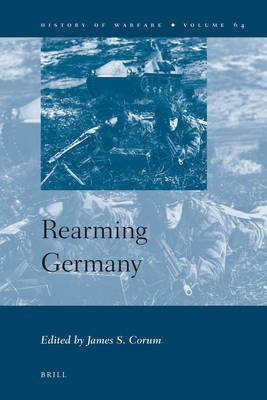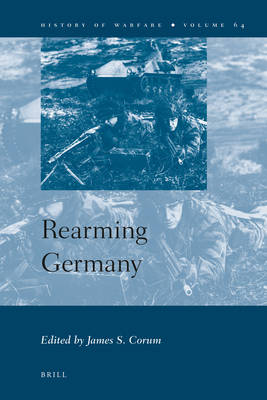
- Afhalen na 1 uur in een winkel met voorraad
- Gratis thuislevering in België vanaf € 30
- Ruim aanbod met 7 miljoen producten
- Afhalen na 1 uur in een winkel met voorraad
- Gratis thuislevering in België vanaf € 30
- Ruim aanbod met 7 miljoen producten
Zoeken
Omschrijving
This book is intended to serve as an advanced course text for students studying the Cold War. The rearmament of both Germanies in the late 1940s-early 1950s was one of the defining moments of the Cold War. The question of rearming Germany became one of the most difficult questions faced by the Western Allies after World War II. Inside West Germany there was also a considerable debate as to whether Germany ought to rearm at all. Once the decision to rearm was made, the Germans and Western Allies ran into all the practical problems of deciding whether Germany would join NATO, what role the Germans would play in the Alliance, how Germany would be armed and the form the armed forces would play in German society.
A team of expert authors have examined all of these core questions in detail. An analysis of the origins of reamament in East Germany is also provided. With this book a reader will gain a thorough understanding of the complex issues that faced the West from 1945-1957.
Contributors are Jonathan House, Douglas Peifer, Martin Rink, Daniel Jordan, Adam Seipp, Thomas Vogel, Klaus Naumann, Dieter Kollmer and Oliver Haller.
A team of expert authors have examined all of these core questions in detail. An analysis of the origins of reamament in East Germany is also provided. With this book a reader will gain a thorough understanding of the complex issues that faced the West from 1945-1957.
Contributors are Jonathan House, Douglas Peifer, Martin Rink, Daniel Jordan, Adam Seipp, Thomas Vogel, Klaus Naumann, Dieter Kollmer and Oliver Haller.
Specificaties
Betrokkenen
- Uitgeverij:
Inhoud
- Aantal bladzijden:
- 304
- Taal:
- Engels
- Reeks:
- Reeksnummer:
- nr. 64
Eigenschappen
- Productcode (EAN):
- 9789004203174
- Verschijningsdatum:
- 11/04/2011
- Uitvoering:
- Hardcover
- Formaat:
- Genaaid
- Afmetingen:
- 165 mm x 246 mm
- Gewicht:
- 635 g

Alleen bij Standaard Boekhandel
+ 561 punten op je klantenkaart van Standaard Boekhandel
Beoordelingen
We publiceren alleen reviews die voldoen aan de voorwaarden voor reviews. Bekijk onze voorwaarden voor reviews.







